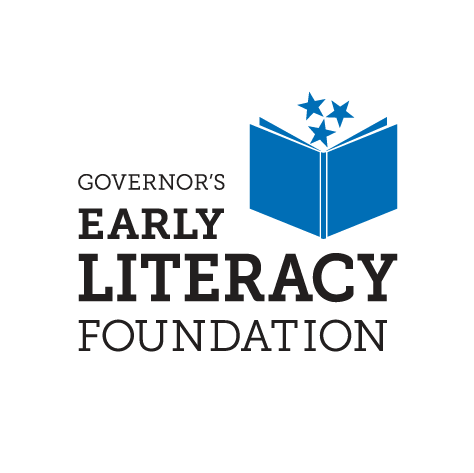James Pond
President, Governor’s Early Literacy Foundation
My dad went to jail for business-related crimes when I was 14, right in the middle of teaching me how to drive a stick shift. My brother was 11, and my sister was 7 years old. Imagine learning what indicted meant because you saw it on TV next to a picture of your dad. Imagine watching police cars pull into your driveway and take your father away in handcuffs. Our friends stopped coming around. Our social circle evaporated. We were publicly humiliated and emotionally confused while trying to navigate what it all meant.
At first, we visited him weekly. He asked us questions, tried to be involved, and be engaged as a parent, but it became more difficult as life moved on without him in our everyday lives. My sister grew out of dolls, and my brother grew into peer pressure. Our used-to-be-cool water beds turned into beds without mattresses and our used-to-be-warm home turned into an empty house. We were missing a part of our family, and a part of our family was missing us grow up.
The first Christmas was depressing, dark, and sad. There were no stockings hung or decorated tree. Holidays lost their meaning, but distance did not.
Things got worse. My mom went down a bad spiral of alcohol and a revolving door of men. After many growing pains caused by many painful arguments, I was kicked out of the house. I couch surfed for a while, but was eventually homeless. With a 1.2 GPA and nowhere to go, one teacher noticed the only thing changing about me each day was one of three 80s concert tees I wore in rotation.
My high school English teacher and his love of reading saved my life. Mr. Corey took me in and gave me structure, boundaries, and responsibilities. The most powerful thing he did was give me an expectation that I would be reading, a lot. He gave me a love for classical authors, a strong sense of the power of books, and how they can change you, impact you, and transform your life.
Mr. Corey gave me a copy of “Moby Dick” when I left for the Marine Corps. He told me to read it when the time is right. I read it while on the USS Blue Ridge on the South China Sea. It changed me. I realized, unlike Captain Ahab, I did not want to carry my anger and negativity. I needed to let it go or it would consume me. I would need to embrace hardship and learn from it instead of seeking someone or something else to blame.
One thought from the book that always sticks with me: “All men live enveloped in whale-lines. All are born with halters round their necks; but it is only when caught in the swift, sudden turn of death, that mortals realize the silent, subtle, everpresent perils of life.”
The perils of life hit all of us, at any age, any stage in life, often unexpectedly. They linger, wrapped around our necks, waiting for a tug from fate or bad luck to tighten.
I felt that tug at a young age. Now, at age 53, I am a U.S. Marine veteran, husband, father to three adult kids, grandfather to two wild toddlers, an avid reader, and president of Governor’s Early Literacy Foundation, whose mission is to strengthen early literacy in Tennessee.
When my dad was released from prison, he didn’t know how to get back to being a parent due to the years of being disconnected from our lives, our education, and our growth into adulthood. While we have a great relationship now, we didn’t have anything to bridge the gap behind bars. Books became a solace, and reading gave me a different outlook on the future.
That’s why at Governor’s Early Literacy Foundation, we partnered with Women Ablaze’s Storybook Program to connect incarcerated parents and their children through reading. In the program, Women Ablaze records an incarcerated parent reading a book, and sends the book and the recording to their children. With the help of Amazon and Scholastic, we are providing home libraries for 158 participating children and donating more than 700 books to the program.
Tennessee is tied with five other states for the third highest prevalence of parental incarceration, with 1-in-10 children having lived with a parent or guardian who served time. Seven percent of all U.S. children have had a parent in prison or jail. Research shows the trauma of being separated from a parent can increase children’s mental health challenges and limit their educational achievement, and kids of incarcerated parents are at a greater risk of dropping out of school. Family instability can contribute to lower reading proficiency and children who do not read proficiently by the end of third grade are four times more likely to drop out than proficient readers.
The Annie E. Casey Foundation’s 2016 report, “A Shared Sentence: The Devastating Toll of Parental Incarceration on Kids, Families and Communities” recommends ways communities can better support children who have a parent in prison or jail, including providing mentoring programs and other support in early education. Studies show that participation in family literacy programs helps keep families together and increases the chances of a parent staying at home once he or she is released from prison.
The gift of reading not only gives children a brighter future, but it can bring comfort and safety during a difficult time. Books bond. Books bridge. Books build.
Families come together during the holidays, but many are always distanced. Reading can keep families together when they are apart. It’s more than books, it’s the future of some of our most vulnerable children.
James Pond is the president of Governor’s Early Literacy Foundation in Tennessee.

